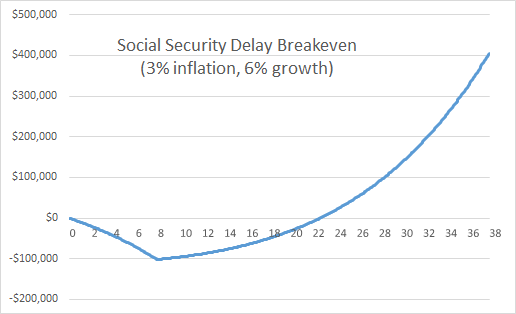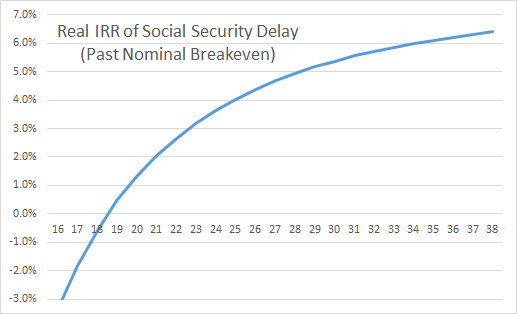It would be for me, also Terry. But I would bet there is a less than 5% chance. This has floated around congress for decades with no action. I suspect it would damage the already ailing trust fund and that alone I would guess (along with history of previous attempts) will prevent it from ever happening. But we can always hope, but not spend it yet.

Sent from my iPad using Tapatalk
I'm diverting this thread a bit but, it's likely important to many of us. It seems this proposal would actually increase SS Trust Fund revenue because, it's a "rob 11 Peters to pay one Paul" scheme.
 The Windfall Elimination Provision Repeal: What You Should Know - Social Security Intelligence
The Windfall Elimination Provision Repeal: What You Should Know - Social Security Intelligence
See the excerpts below, with my
bolding.
You may be thinking that you’ve heard all this talk about Social Security fairness before. You’re right – it’s been discussed for years. But this measure has a really good chance of passing for three reasons.
The bill will save the SSA money – This isn’t the first time that an effort to repeal the WEP has surfaced. There have been many such attempts in years past. None of those ever made it far in the lawmaking process due to the very high cost of a full WEP repeal. However, this bill would not increase the deficit. In fact, the Social Security Administration’s Office of the Chief Actuary found that these changes would actually have a positive financial effect!
A Larger Affected Group
In the past, one of the basic requirements for the WEP penalty was to have not only worked in non-covered employment, but to have qualified for a pension from that work. Under the new formula, that requirement would go away.
Moving forward, the only requirement to have the PSF applied would be one year of non-covered earnings. This new requirement will dramatically expand the group that is subject to a Social Security benefit reduction. The Social Security Office of the Chief Actuary said: “Our estimate reflects small benefit reductions from the PSF for a relatively large number of workers who would not be reduced by the WEP.”
This expansion to a larger pool of individuals is one of the main areas that makes this new law cost-neutral. In fact, the actuary’s report states that adding the one year requirement will increase revenue by $2.7 billion for years 2017-2023!
Although many will be happy the new rule is increasing their benefits,
many will begin to see a reduction in benefits for the first time.
As currently written, the new rule will be fully effective for those turning 62 in 2017 or later.
According to Dr. Andy Szakmary, a Professor of Finance at Richmond University, there will be 11 losers for every winner under this legislation.
He went on to say.
“
14 MILLION PEOPLE (according to Goss’ testimony) will become newly subject to the WEP and have their SS benefit reduced, versus 1.25 million people who will receive a higher benefit than under the current formula – so there will be 11 losers for every winner. This is why the bill is much more than revenue neutral – it actually saves SS tons of money. But it does so on the backs of many millions of innocent people who did nothing wrong, in most cases having worked in government or non-profit employment for only a few years, and who cannot now travel back in time and retroactively change their work histories. It would be one thing to pass a bill stating that, from this point forward, if you work in non-covered employment your SS benefit will be 1/35 = 2.86% lower for each year that you do so, but to completely alter the formula, suddenly remove all exemptions and dramatically change the rules for a 61-year-old right before he/she becomes eligible for benefits (as HR 711 does) is infinitely more unfair than sticking with the current system, which has been in place since 1983 and for which current retirees arguably should be prepared. At least President Obama’s proposal, which is similar to HR 711 in its formula, would not be implemented until 2027 and thus would not impact anyone currently close to retirement.”



 Getting married for the first time at age 70 none of that stuff entered my mind. Silly me
Getting married for the first time at age 70 none of that stuff entered my mind. Silly me  . Neither did my previous GF of 29 years allow such considerations.
. Neither did my previous GF of 29 years allow such considerations.
